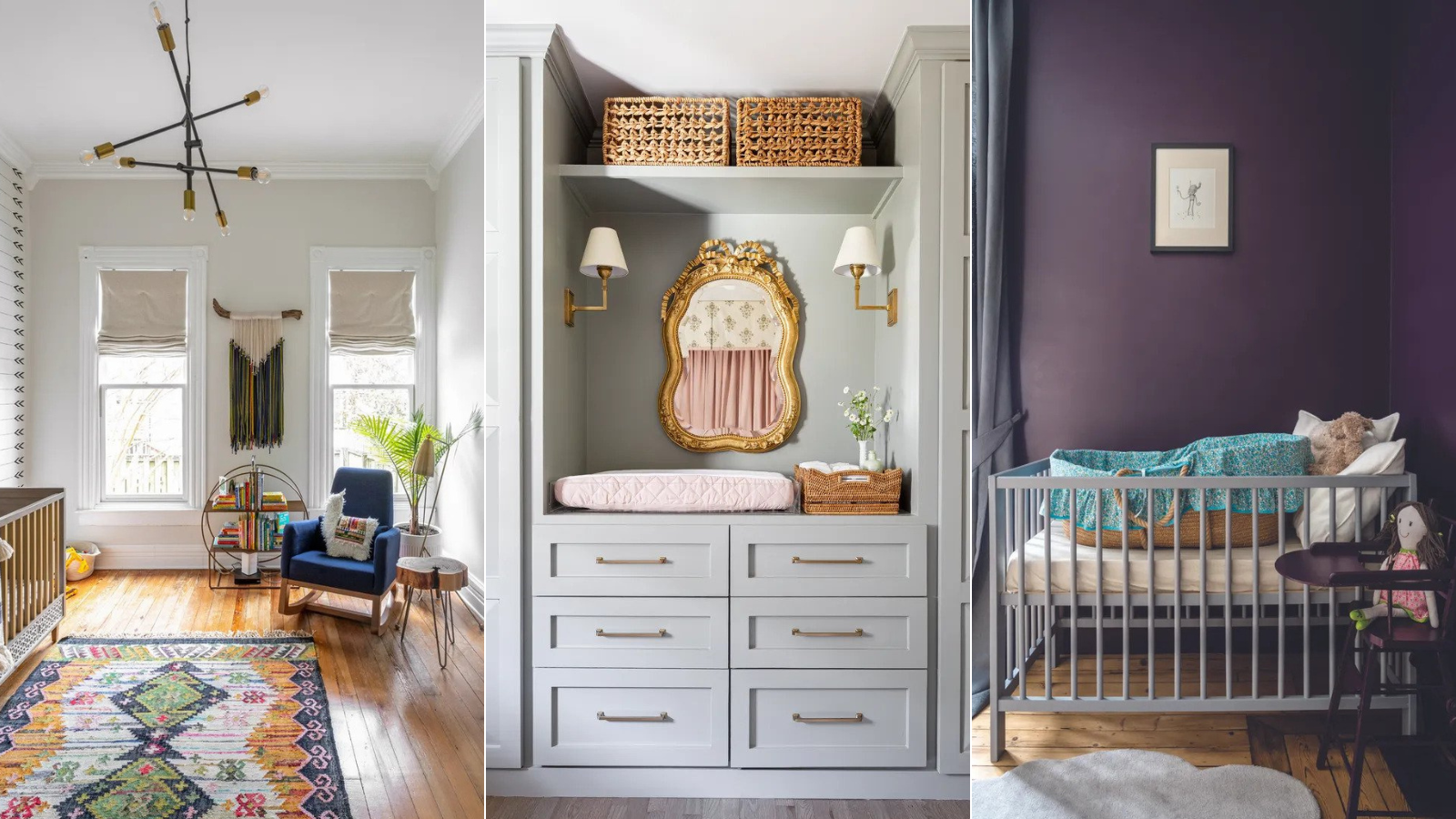
Welcoming a new baby is magical, but it’s full on, especially those first few weeks. Whether it’s rocking, feeding, burping or changing, you’ll always have something to do. Wasting time looking for things or clearing clutter is the last thing you need, so take the opportunity to organize your home for a new baby ahead of time.
While cute nursery ideas are of course a priority, there are other more practical (albeit less fun) things you could channel your nesting energy into. Alongside batch-cooking freezer meals and stocking up on household essentials, organizing and decluttering before a baby arrives will help you to feel relaxed, calm and in control, so you can focus on what matters most – bonding with your little one.
How to organize your home for a new baby
When you’re about to welcome a little one into the family, organizing a home with kids in mind is undoubtedly useful, and saves you time further down the line, too. Try not to put too much pressure on yourself though; it may sound like a big task to take on (especially when you’re busy growing a tiny human) but just a few simple adjustments can make a big difference.
'I know the value of having a plan, but I also know not to stress over perfection – no organizational system is perfect with a newborn! But taking the time beforehand to set up calm, functional zones gave me one less thing to stress over during those beautiful, sleepy early days with my son’, says Sam Thomason, founder of parenting blog, Simple Everyday Mom.
When it comes to home organizing ideas, there’s no such thing as perfect. We’ve quizzed the pros for their top tips; do what feels right for you, and all the rest will follow – a bit like parenting, really!
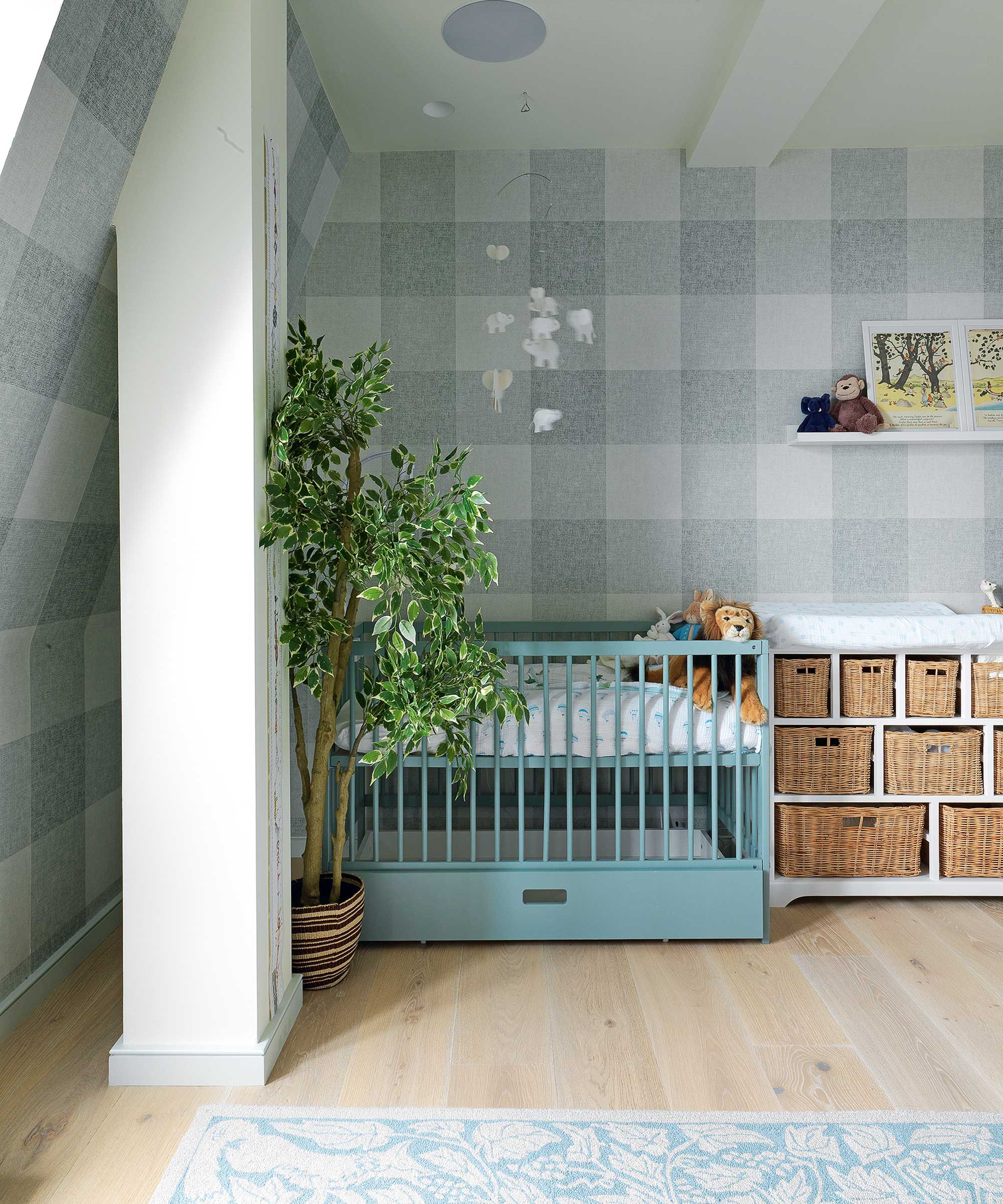
1. Declutter early
Before you start bringing in blankets, bottles and burp cloths, not to mention the bigger items, like a cot and change table, you’ll need to ensure you’ve got the space to store it all. You won’t have time to do this properly when in the midst of night feeds and diaper changes, so decluttering ahead of time is essential.
If you're not sure where to start, check out our ultimate decluttering checklist, or learn how to declutter your home room by room if you prefer a more leisurely approach. It’s also worth giving everything a thorough spring clean while you still can – the bigger the bump, the harder it gets!
2. Give everything a home – and prioritize access
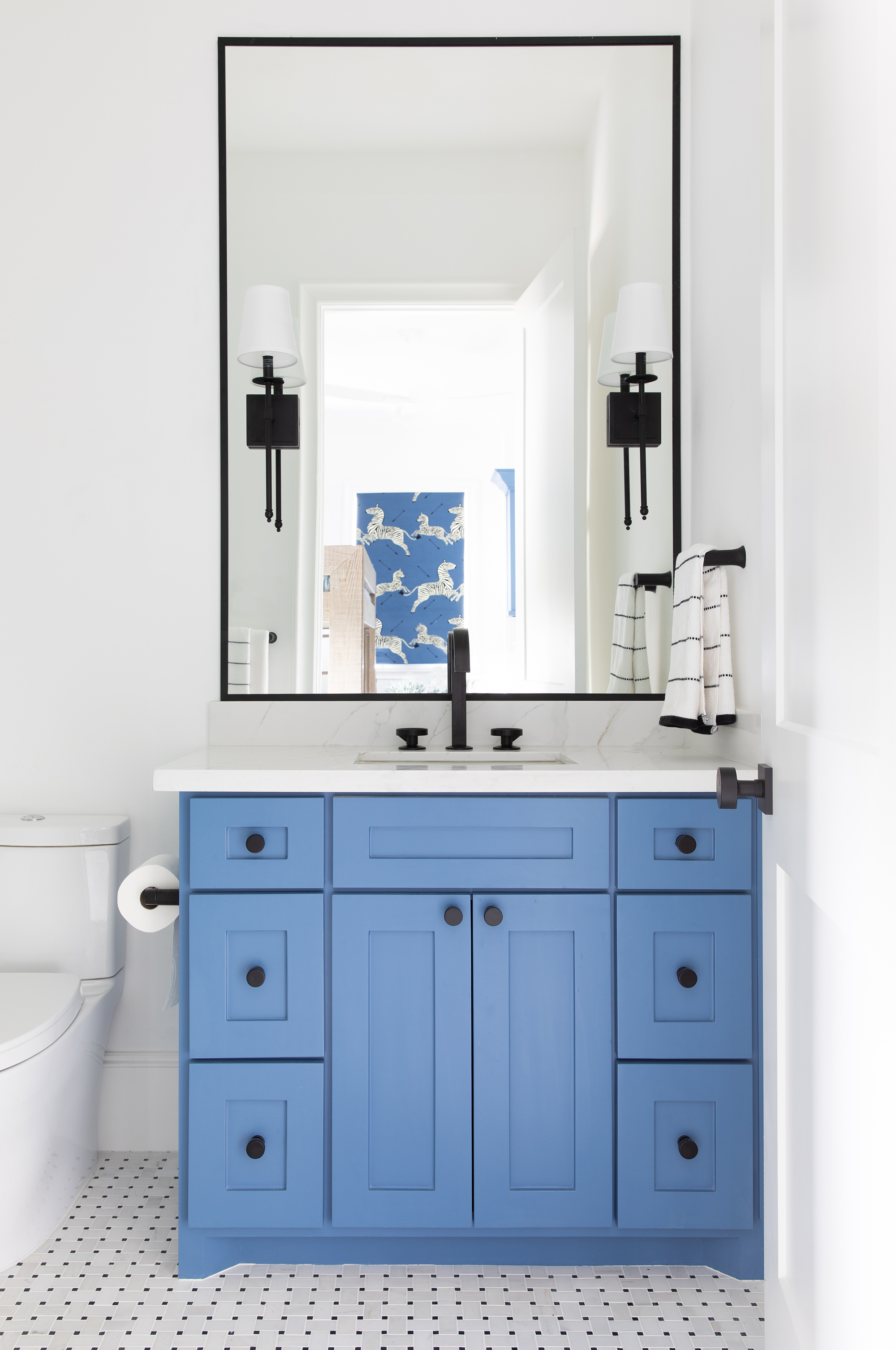
Even when you’ve decluttered beforehand, seeing so many items coming into your home can be pretty overwhelming. Rather than dump them all in the spare room, take the time to sort through now and assign everything a home, right down to the very last diaper.
When deciding what goes where, designate prime storage to baby-related items you’re going to need frequent access to, even if it’s just on a temporary basis. Think about what’s going to save you time and effort in the long run.
‘If you’re storing extra supplies, position the most recent purchases at the back and bring the previously purchased items forward. This helps track your inventory, so you don't buy extras’, says professional organizer Stephanie Linn.
3. Think practically
Whether you’re organizing a small space or not, you’re going to need to think savvy when it comes to storage and furniture choices across your home. Investing in designs that will suit your child as they grow will save you time and money in the long run – they won’t be babies forever, sadly!
Good examples include cribs with removable sides and changing tables that double up as a chest of drawers, as well as stylish baskets, trunks and storage chests for dual-purpose spaces, such as playrooms and family rooms. If you’re in need of extra storage, Lucy Searle, content director at Homes & Gardens, recommends investing in a cubby-style unit with boxes or baskets you can pull out.
‘Organize items into categories (feeding, diaper changing, sleeping, playing etc) so you can access what you need quickly and transport it easily from room to room. This type of storage is just as useful further down the line when organizing a playroom, or instilling kid’s bedroom storage ideas, so it’s a worthwhile investment’, she says.
4. Use labels
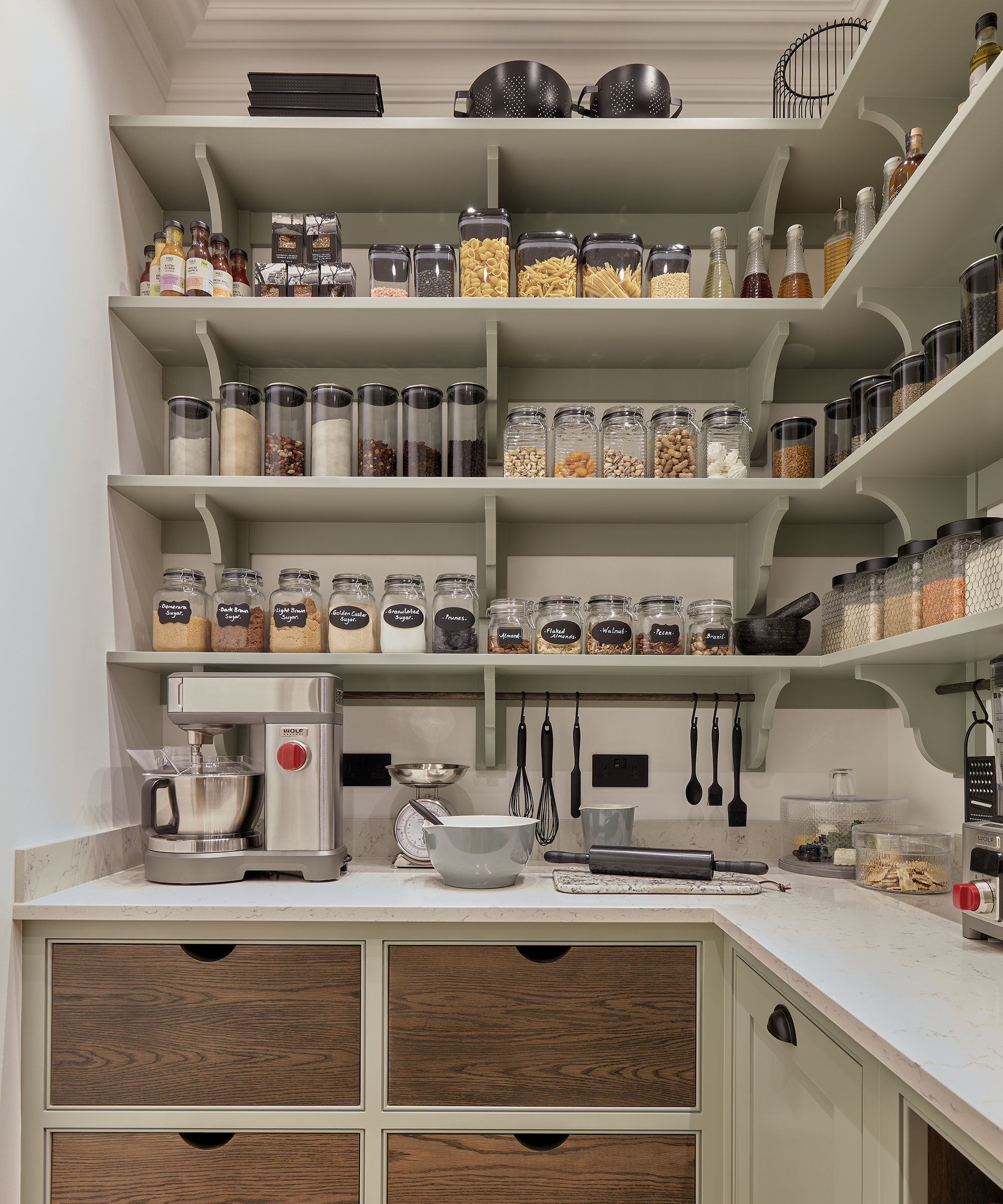
Once you have things contained and positioned where you want them, get labeling. ‘As well as reminding you what’s where, doing this also means friends and relatives can help out without having to ask – you’ll be glad of that when you’re in need of a nap yourself!’, says professional organizer Amanda Wiss, founder of Urban Clarity.
Once your baby reaches toddler age, storage for burping cloths and pacifiers might become toy storage ideas instead, then school supplies a few years later, and so on. Save yourself the hassle of replacing all-new labels every time by using chalkboard tags, like these clip on versions at Amazon.
5. Set up ‘baby stations’ across the house
‘I have two floors in my home, so I set up a dedicated "baby station" on each one (in my living room and bedroom) to make things easier when my children came along. Nothing fancy or expensive, essentially a basket or diaper caddie (I prefer them with lots of compartments and handles, like this from Target) filled with most-used essentials, so that I didn’t need to go traipsing up and down the stairs each time’, says Lucy Searle.
6. Sort out clothes sizes
From baby shower gifts and hand-me-downs, to those cute little babygrows you just can’t resist buying, organizing baby clothes is something you need to master – and quickly. It’s not quite as simple as organizing a closet for yourself; the rate at which they grow means you’re going to have to establish systems not just for current outfits, but outgrown and future ones, too.
Reserve prime bedroom storage ideas for your baby’s current size only. Trying to store it all at once will only result in jam-packed drawers and closet space, which makes it really difficult to see and grab what you need. Keep the rest stored elsewhere in clear plastic bins (so you can see how much of each size you have) somewhere out of the way but easy enough to access, under the bed or on top of the wardrobe, perhaps.
Keep on top of ‘too-small’ clothing by keeping a designated bin somewhere handy, such as in your closet, so you can set aside items there and then. When you’ve got a bit more time, sort through for donation, resale, or future use.
7. Prepare the nursery
‘Most parents spend a lot of time trying to make the nursery look cute, but the reality is you’re not going to care when you’re changing diapers at 4am! Organizing a nursery so it’s practical, safe and easy to move around should be the focus’, says professional organizer Ben Soreff, founder of House to Home Organizing.
‘I’d recommend avoiding fixed decor or nursery storage ideas, so you can adapt them easily as your baby’s needs change – think wall decals rather than paint, for example. Dual-purpose furniture maximizes floor space and helps to ensure it remains as clear as possible. Think creatively; the top of a dresser can be used as a changing table, or baby clothes organized in storage boxes under the crib’, he says.
8. Don’t forget your fridge (and freezer)
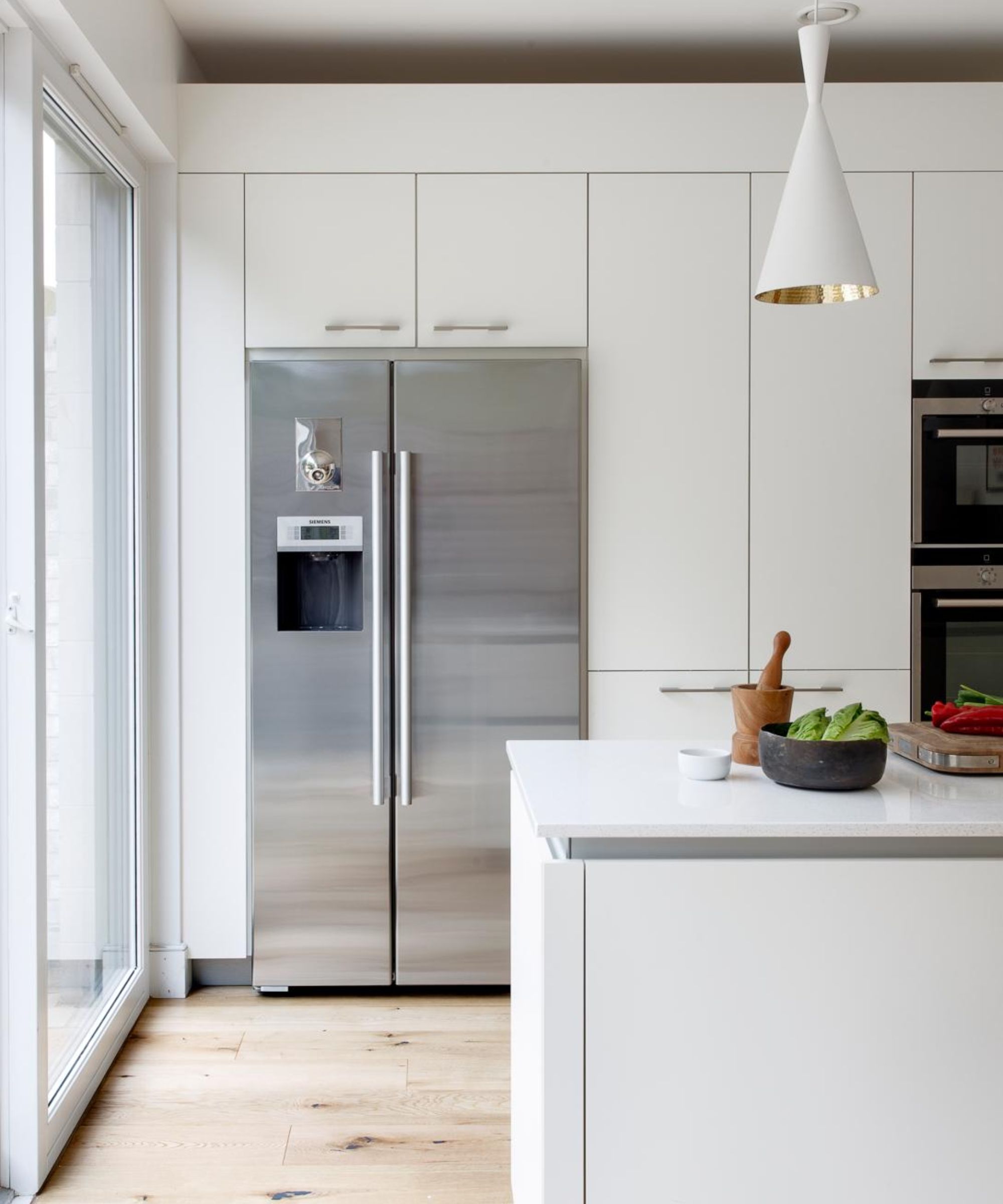
Even if you’re planning to nurse baby yourself, organizing a refrigerator so there’s space to store extra milk supplies and emergency formula (as well as all those lovely homemade meals your friends and family will hopefully be supplying you with) is a good idea.
It’s also worth organizing your freezer, especially if you’re planning on batch cooking. ‘Divide meals into usable portions, so you can simply defrost the perfect amount every time. The same goes for when your baby moves onto purees – ice cube trays are great for this’, says Millie Hurst, Solved Section Editor, Homes & Gardens.
9. Prep for visitors (if you want to)
No one’s going to be judging your hosting skills when you’ve got a newborn to care for, but prepping for visitors ahead of time can take some of the stress off your shoulders.
Stock up on teabags, biscuits and loo rolls, and organize the spare room if you’re having guests to stay (assuming they’re there to help, that is). Positioning open baskets in each room that you can drop stuff into throughout the day keeps things tidy, and makes the living room easier to clean (or fake-clean, at least), too.
That being said, you’re under no obligation to host guests unless you want to. In any case, but especially as a new parent. Don’t be afraid to accept help either. If a friend offers to cook you a meal, or hold baby so you can have a snooze, say yes!
10. Prioritize safety
Like with any child-related organizational task, safety needs to come first. Familiarize yourself with baby-proofing requirements and get it sorted now, so you can switch off and relax when baby arrives.
FAQs
How do I declutter my house before having a baby?
Decluttering before a baby arrives is not that much different to in general, really. The same rules apply, you might just want to focus on a few specific areas first – just in case baby surprises you with an early arrival!
Consider which rooms in your home you’re going to be spending the most time in, the living room and bedroom, for example, as well as areas you’re going to need access to regularly, closets, kitchen cupboards, the fridge etc. Get rid of items you no longer need (or move those you won’t need for a while into temporary storage) and prioritize space for baby essentials.
Be sure to give everything a home so it’s quick and easy to tidy, but before you put items back, take the opportunity to give everything a good clean – it might be a while before you have the time (or incentive) to get the duster out!
‘Organizing a home for a new baby can be quite daunting, there’s no doubt about that. But by anticipating their needs, planning ahead, and seeking support from friends and family, you can overcome these challenges and create a warm, welcoming space for your newest family member.
'Remember, it's okay to ask for help, and every effort you put into organizing your home is an investment in your baby's well-being’, finishes Karina Toner, Operations Manager at Spekless Cleaning.







